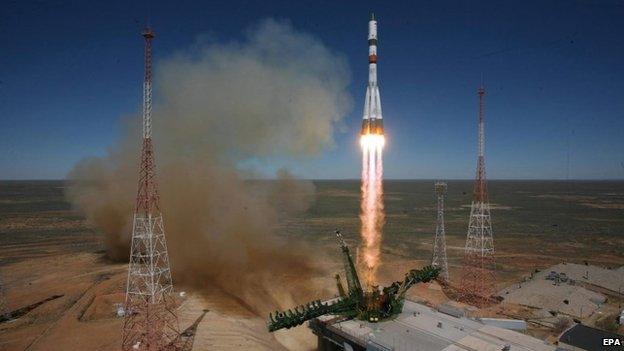Russian rocket carrying satellite burns up over Siberia
- Published
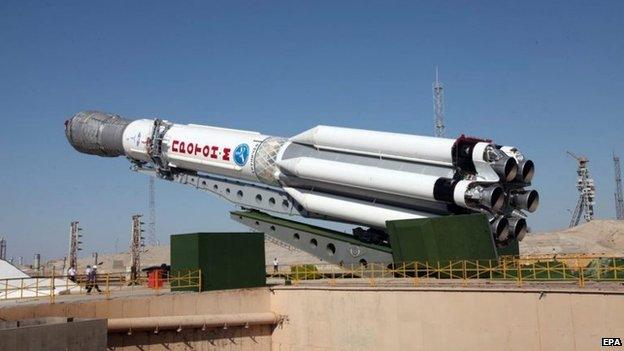
The crash is the latest in a series to affect Russia's space programme
A Russian rocket carrying a Mexican satellite has malfunctioned and burnt up over Siberia soon after launch on Saturday, Russia's space agency says.
The Proton-M carrier rocket broke down minutes after it was launched from Kazakhstan on Saturday morning, the Roscosmos agency said.
The cause of the accident is being investigated, Roscosmos added.
Russia's space programme has experienced a series of embarrassing mishaps in recent months.
Earlier reports said that the rocket had crashed in Siberia.
On Tuesday Russia was forced to delay the return of three astronauts on board the International Space Station (ISS) after an out-of-control unmanned cargo ship also burnt up as it re-entered the Earth's atmosphere on 28 April.

Analysis: Jonathan Amos, Science correspondent, BBC News
Russia used to be a byword in reliability for space technology, but its reputation has taken a hammering recently. Proton rockets now fail with alarming regularity. Officials will try to find the cause of the latest mishap, but confidence is waning, and many commercial satellite operators have already started to take their business elsewhere.
For those who still have contracts with Proton, this failure is a major headache, in particular for London-based Inmarsat. The world's largest mobile satellite services operator is in the midst of rolling out Global Xpress, its next-generation constellation of satellites. This is the largest single commercial space project in Britain, worth more than $1.57bn (£1bn), and will provide enhanced communications to ships, planes, the armed forces and broadcasting companies.
Two of the three satellites in Global Xpress have been launched successfully on Protons. The third was due to be launched next month. This will not happen now, and the anticipated September inauguration of global services on the new constellation will likely be pushed back several months as a consequence.

Problems occurred about eight minutes into the Proton-M flight, which was broadcast live by Russia's space agency Roscosmos.
"There has been a malfunction on board the booster rocket. This broadcast is now over," the presenter said.
Roscosmos said that "an emergency situation took place when the Proton-M rocket launched with a MexSat-1 satellite".
"The reasons are being identified," the agency said in a statement, external (in Russian).
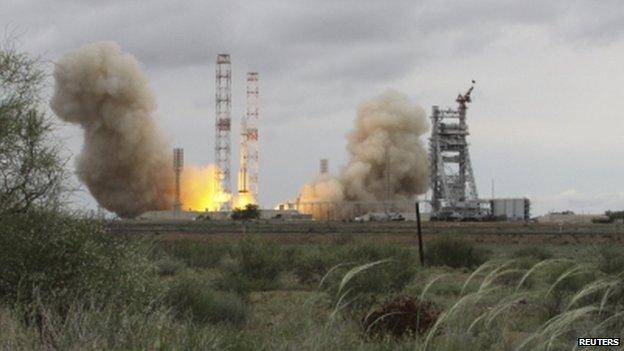
The Proton-M carrier rocket blasted off with the MexSat-1 communications satellite from the Baikonur cosmodrome in Kazakhstan
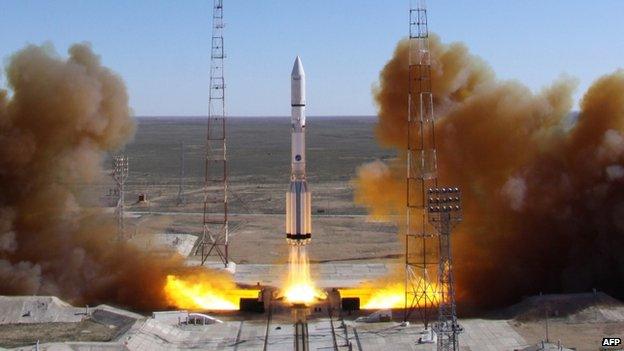
Russia earns large amounts of foreign exchange from the launches of Western and Asian commercial satellites
Space industry sources say that the Mexican satellite has not been found and launches of Proton-type rockets will be grounded until the reason for the malfunction is established.
Roscosmos said in a statement that the communications satellite, booster and third stage burnt up almost entirely in the atmosphere with no evidence of anything falling to earth.
The agency said that the accident happened at a height of 161km (100 miles) and that the satellite had been insured by the customer.
President Putin has been informed of the satellite failure, his spokesman Dmitry Peskov said.
Sources say that communications were lost with the Proton-M rocket soon before it was supposed to separate from the third-stage rocket.
The engine of the third-stage rocket accidentally switched off, Russian news agencies reported, citing space industry sources.
Russia earns large amounts of foreign exchange from the launches of Western and Asian commercial satellites.
The Proton-M carrier rocket is Russia's main vehicle for commercial satellite launches, but in recent years has been repeatedly grounded because of mechanical difficulties.
Russia has been using Proton carriers since the Soviet era and now has a monopoly on sending astronauts to the ISS following the mothballing of the US Space Shuttle programme.
- Published12 May 2015
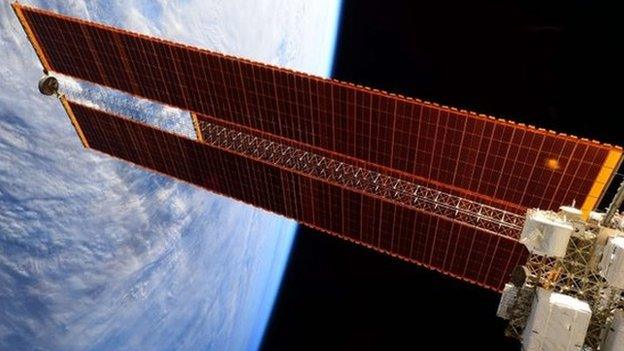
- Published8 May 2015
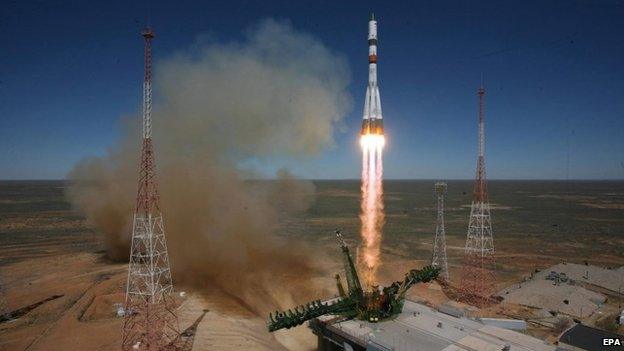
- Published29 April 2015
